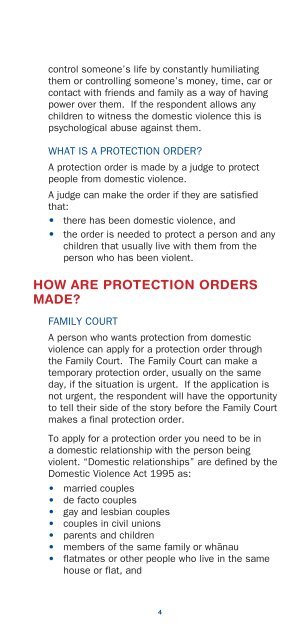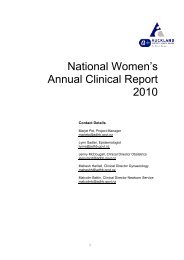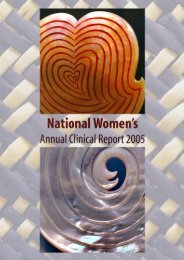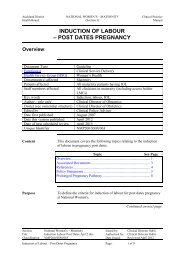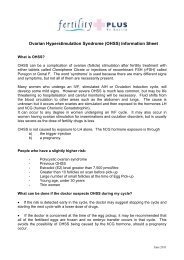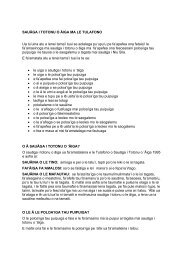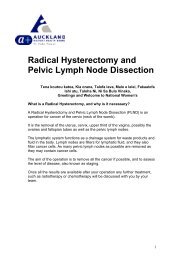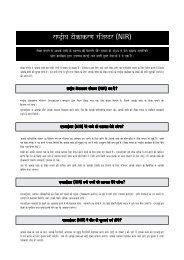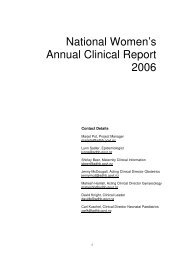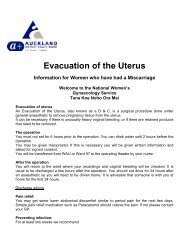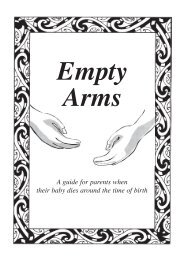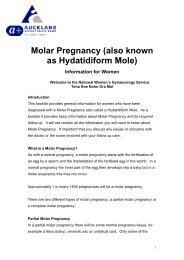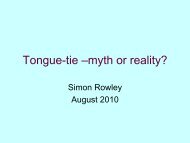Domestic Violence and the Law
Domestic Violence and the Law
Domestic Violence and the Law
You also want an ePaper? Increase the reach of your titles
YUMPU automatically turns print PDFs into web optimized ePapers that Google loves.
control someone’s life by constantly humiliating<br />
<strong>the</strong>m or controlling someone’s money, time, car or<br />
contact with friends <strong>and</strong> family as a way of having<br />
power over <strong>the</strong>m. If <strong>the</strong> respondent allows any<br />
children to witness <strong>the</strong> domestic violence this is<br />
psychological abuse against <strong>the</strong>m.<br />
WHAT IS A PROTECTION ORDER?<br />
A protection order is made by a judge to protect<br />
people from domestic violence.<br />
A judge can make <strong>the</strong> order if <strong>the</strong>y are satisfied<br />
that:<br />
• <strong>the</strong>re has been domestic violence, <strong>and</strong><br />
• <strong>the</strong> order is needed to protect a person <strong>and</strong> any<br />
children that usually live with <strong>the</strong>m from <strong>the</strong><br />
person who has been violent.<br />
HOW ARE PROTECTION ORDERS<br />
MADE?<br />
FAMILY COURT<br />
A person who wants protection from domestic<br />
violence can apply for a protection order through<br />
<strong>the</strong> Family Court. The Family Court can make a<br />
temporary protection order, usually on <strong>the</strong> same<br />
day, if <strong>the</strong> situation is urgent. If <strong>the</strong> application is<br />
not urgent, <strong>the</strong> respondent will have <strong>the</strong> opportunity<br />
to tell <strong>the</strong>ir side of <strong>the</strong> story before <strong>the</strong> Family Court<br />
makes a final protection order.<br />
To apply for a protection order you need to be in<br />
a domestic relationship with <strong>the</strong> person being<br />
violent. “<strong>Domestic</strong> relationships” are defined by <strong>the</strong><br />
<strong>Domestic</strong> <strong>Violence</strong> Act 1995 as:<br />
• married couples<br />
• de facto couples<br />
• gay <strong>and</strong> lesbian couples<br />
• couples in civil unions<br />
• parents <strong>and</strong> children<br />
• members of <strong>the</strong> same family or whänau<br />
• flatmates or o<strong>the</strong>r people who live in <strong>the</strong> same<br />
house or flat, <strong>and</strong><br />
4


